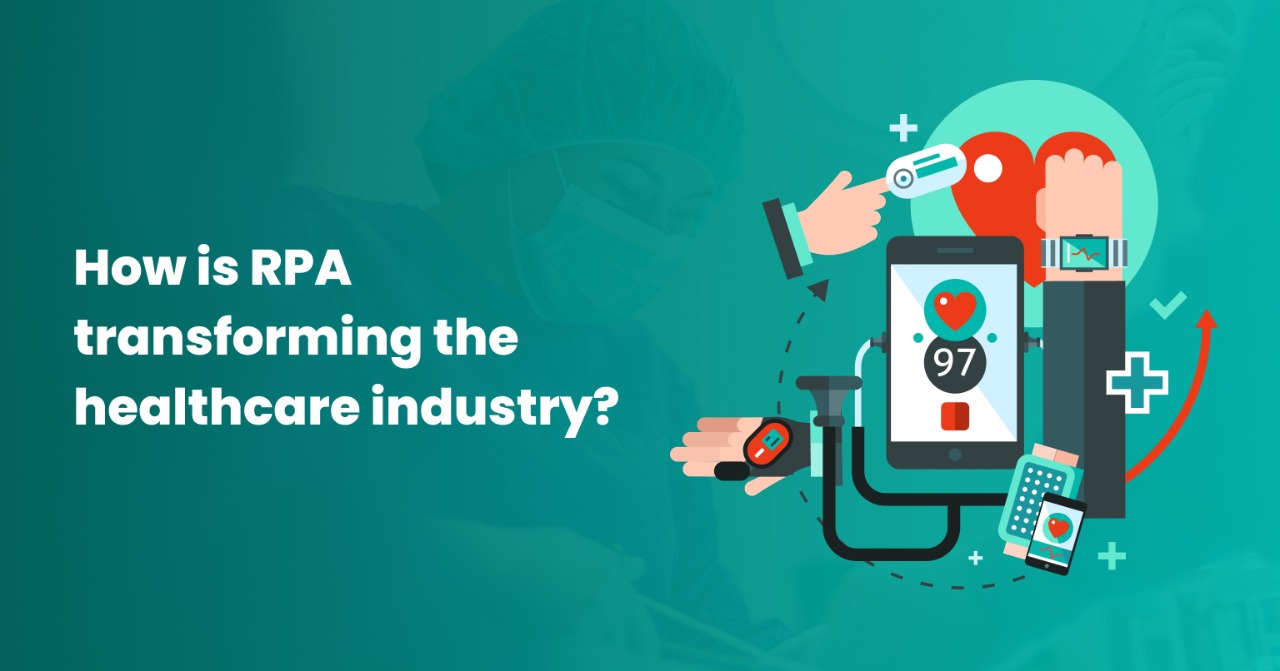Coronavirus has thrown the world’s economy into disarray, and the healthcare business is one of the worst-affected sectors because of the epidemic. Not only do healthcare providers have to deal with an increase in cases, but they also must cater to the needs of patients who already have chronic conditions.
According to a WHO report, the United States has a global doctor shortage, with 2.5 healthcare practitioners per 1000 people. With a limited number of doctors, providing high-quality medical services to a population with a wide range of medical requirements offers several operational and organizational issues.
Robotic Process Automation (RPA) aims to address all these issues. As patients grow, patient onboarding, claim processing, billing, gathering reports, filling prescriptions, and other essential operational activities will be challenging for healthcare practitioners. Most of these jobs, on the other hand, are repetitive and follow a set of rules–exactly the characteristics that justify Robotic Process Automation.
According to a 2019 McKinsey report, Robotic Process Automation is an emerging automation technology that might radically overhaul the present healthcare system. According to the same estimate, timely RPA implementation might boost yearly revenue from $350 billion to $410 billion by 2025. In healthcare, robotic process automation has a lot of potential for enhancing and streamlining operational and organizational procedures. Let’s look at some of the benefits:
Increased Appointment Turnover
Healthcare providers suffer financially as a huge majority of patients either don’t show up or cancel their appointment at the very last minute. Effective RPA implementation with a good telemedicine solution will allow doctors to send out appointment reminders and even ask for follow-ups, resulting in increased appointment turnover, productivity, and efficiency.
Improved Patient Experience
A positive patient experience is critical for the patient’s progress and well-being. RPA in healthcare can help medical professionals automate time-consuming and repetitive procedures while also providing other benefits such as data digitization and patient tracking. These elements are advantageous to the patients and improve the value-based care experience in the long run.
Efficient patient scheduling
RPA smart bots (short for ‘robots’) assist in expediting online appointments. RPA bots recognize and record key elements in appointment requests, such as the location, physician, claim carrier, time, and date. These bots then compile a report with these details and transmit it to the individual or system in charge of confirming the appointments.
Streamlined Processes
There are several key aspects shared by healthcare providers and patients alike. These tasks include population wellness, case utilization management, and remote monitoring. All these duties have one thing in common: they all involve time-consuming and repetitive operations, making them ideal candidates for Robotic Process Automation.
Regulatory compliance
Everything RPA bots do, trigger, track, trace, or document is logged and saved systematically in well-structured logs. Send these logs to those who need to know, and you’ll be able to prove your practice’s responsibility. This even equips healthcare organizations to deal with and handle unexpected external audits if any.
Although using new technology can be difficult, the rewards far outweigh the challenges. RPA in healthcare is a win-win situation for doctors and patients alike, as it streamlines workflow and improves patient care.
Looking for expert technology consulting services? Contact us today.





